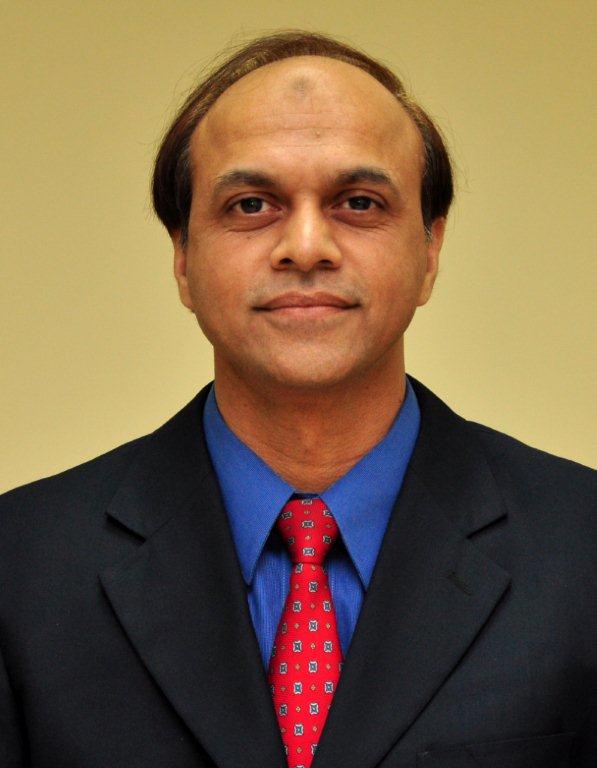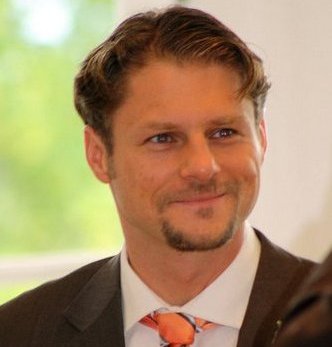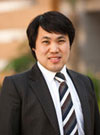Workshop on IT in Biology
and Medicine (ITBM'13)
Workshop Overview
Biologists are working hard to
understand the biological processes that underlie disease pathways
in the clinical contexts. This has resulted in a flood of biological
and clinical data from genomic sequences, DNA microarrays, and
protein interactions, to biomedical images, disease pathways,
and electronic health records. Several practical issues such
as handling noisy and incomplete data, processing compute-intensive
tasks and integrating heterogeneous data sources are new challenges
faced by biologists in the post-genome era. The main questions
to be addressed in this workshop are how to exploit these biomedical
data for discovering new knowledge that can be translated into
clinical applications and what is the role of informatics in
healthcare? We therefore encourage submission of papers address
the challenging issues in various biological data analysis and
the implementation of informatics in clinical practice. All
accepted papers in the workshop will be published by the Innovations
conference proceedings and indexed by the IEEE EXplore.
Program
Download the full program
Speakers
|
Speaker: |
Prof. Firdos Alam Khan
|
 |
Department
of Biotechnology,
Manipal
University Dubai Campus
Firdos
Alam Khan, Professor, and Chairperson, Department of
Biotechnology, Manipal University Dubai, UAE and over
past 8 years Prof. Khan has been associated with the
Manipal University Dubai. Professor Khan received his
PhD degree in Neuroscience from Nagpur University, India.
He has more than 19 years of research and teaching experience
in various domains of biotechnology. He did his first
postdoctoral research from Tata Institute of Fundamental
Research, Mumbai, India and second postdoctoral research
from Massachusetts Institute of Technology (MIT), Cambridge,
USA. He worked with Reliance Life Sciences a multimillion
dollar Biotech Company based in Mumbai, India, as a
research scientist and worked on adult and embryonic
stem cell projects. His area of specialty in biotechnology
includes stem cell technology, neuropharmacology, and
neuroscience. He has written numerous articles in various
national and international journals in the areas of
neuroscience, neuropharmacology and stem cell biology.
He has been granted two US patents in the field of stem
cell technology. He has nominated as a member of scientific
advisory committee for Pharmaceutical & Biotechnology
Middle East. He has written a textbook entitled “Biotechnology
Fundamentals” in 2011 published by CRC Press/Francis
Taylor Group, USA. He has been associated with various
international scientific organizations like International
Brain Research Organization, France, and Society for
Neuroscience, USA.
|
|
Talk Title: |
Role of Information
Technology in Drug Discovery |
|
Abstract: |
The
making of new drug molecule is a highly expensive and
time-consuming process especially drug target identification
is very laborious and time-consuming and it’s has been
suggested that about 12-15 years of research is required
in order to bring a new drug molecule in the market.
Over many years drug and pharmaceutical companies were
on hunt to identify a technology that can expedite the
drug discovery process with cost-effective way and fortunately
with advent of information technology, it has become
possible to virtually design the drug molecule in the
computer. The computer-aided drug design technology
has given a tremendous opportunity to pharmaceutical
companies to identify new potential drug targets with
less-time consumption. In recent years, we have seen
an explosion in the amount of biological data being
generated and that enormous amount of biological databases
is doubling in size every 2 years. With the help of
information technology it become possible not only to
analyze the biological data but also possible to completely
map the genome sequences of more than 100 different
species. More recently the pharmaceutical industry has
incorporated genomics as a source of drug targets. It
also recognizes that the field of information technology
is crucial for validating these potential drug targets
and for determining which ones are the most appropriate
for actual drug development process. Of late, there
has been a change in the way that drugs are being developed
due to our amplified understanding of molecular biology
of the target receptors. Though information technology
has expedited the drug discovery process but still laboratory
research is mandatory to evaluate drug efficacy both
in animals and human trials to study the unknown or
undesirable side effects of drug molecules.
|
|
|
|
|
Speaker: |
Dr. Andreas Henschel
|
 |
Computing
and Information Science
Masdar
Institute
Dr.
Andreas Henschel received his M.Sc. in Computational
Logic at the Technische Universitaet Dresden, Germany
in 2002. He then joined Scionics Computer Innovation
Ltd., where he worked for the Bioinformatics service
facility of the Max Planck Institute Dresden, Germany.
In 2008 he received his PhD from Technische Universitaet
Dresden in Bioinformatics. His PhD thesis focused on
the classification of protein-protein interactions and
was awarded summa cum laude. He joined Masdar Institute
as a post-doctoral researcher in April 2009 and will
join as faculty in August 2011. From August 2011 till
August 2012 he worked at Martin Polz' lab (Massachusetts
Institute of Technology, Cambridge, USA) as Visiting
Scholar.
|
|
Talk Title: |
Comparison of microbial
communities and populations |
|
Abstract: |
The
ever decreasing cost of DNA sequencing has led to a
recent deluge of Metagenomic projects and Microbial
Community Profiling experiments in all kinds of environments,
e.g., the Human Microbiome Projectand the Earth Microbiome
project. It is clear that the current data collections
require formalisms to integrate knowledge of meta data
and ontolgy based knowledge management systems are in
an early stage to tackle this task. Within this framework
we suggest an approach of how a topology of environments
can be derived from 16S rRNA profiles using phylogeny
based distance measures.
On
a more detailed level, microbial populations are defined
as ecologically and phylogenetically coherent groups.
Their dynamics with respect to their habitat is studied
through time series or spacial sampling. In order to
discover habitat changes and emerging sub-populations,
it is necessary to relate populations from different
sampling time points. This is a frequent task and it
is therefore desirable to automize the process of relating
populations to each other. To this end we developed
a method that integrates populations associations, their
assigned habitats and their combined phylogeny.
|
|
|
|
|
Speaker: |
Dr. Paul D. Yoo
|
 |
College
of Engineering
Khalifa
University
Paul
D. Yoo is an Assistant Professor in the Department of
Electrical and Computer Engineering, at Khalifa University,
Science, Technology and Research (KUSTAR). He was a
Research Scientist in the Centre for Distributed and
High Performance Computing, at the University of Sydney
from 2008 to 2009, and PhD Researcher (Quantitative
Research) at the Capital Markets CRC “ initiated and
administered by the Australia Federal Department for
Education, Science and Training, from 2004 to 2008.
Recently, he was a Principal Investigator (PI) of a
e-Bioinformatics research project funded by the Emirates
Foundation 2010-2011, and has been supervising a number
of MSc/PhD students in the areas of bioinformatics/intelligent
systems. Paul is the inventor for DomNet, SiteSeek and
IGRN, well-regarded artificial intelligent systems in
proteomics. He has also been awarded a number of prestigious
international and national awards for his work in research
and application of artificial intelligence in bio-/medical-/health-,
green ICT and financial domains, notably ARC Research
Network in EII Award, Emirates Foundation (EF) Research
Award, Australian Postgraduate Award, and Capital Markets
CRC Award.
|
|
Talk Title: |
Bioinformatics and
Its Application in Proteomics |
|
Abstract: |
In
this talk, the following three research topics will
be discussed: (1) bioinformatics – big data and computational
power; (2) protein structure prediction; and (3) prediction
of AIDS disease progression.
|
|
|
|
Research Topics and Challenges
Topics of interest to the workshop
include, but are not limited to:
- Biological and medical
data collection, cleansing, and integration
- Biological and medical
data visualization
- Data pre-processing to
handle noisy, missing biological and medical data
- Knowledge representation
and annotation of biological and medical data
- Machine learning algorithms
for biological and healthcare applications
- Disease bioinformatics
- Computational methods
for drug discovery
- Biological markers detection
- Pharmacogenomics data
mining
- Analysis of complex disorders
- Integration of biological
and clinical data for translational research
- Bioinformatics databases
and resources
- Text mining algorithms
for biological and healthcare applications
- Biological network analysis
- Pattern analysis in computational
genetics, genomics and proteomics
- Semantic web and knowledge
acquisition in biology and healthcare
- Electronic health records
and biomedical repositories
- Analysis of Biomedical
Systems
- Electronic medical records
security and privacy
Organizing Chairs
- Nazar Zaki, Intelligent
Systems, Bioinformatics, CIT, UAE University, email:
nzaki@uaeu.ac.ae
- Fekri Kharbash, Computer
Systems Design, Biomedical Systems, CIT, UAE University,
email: fekrik@uaeu.ac.ae
Program Committee
- Sawsan Khuri, Center for
Computational Sciences, Univ. of Miami, USA.
- Dmitry Efimov, Faculty
of Mechanics and Mathematics, Moscow State University, Moscow,
Russia.
- Sanjida Ahmed, Eastern
Biotech & Life Sciences FZ LLC, Dubai, UAE.
- Enrico Capobianco, Center
for Computational Sciences, Univ. of Miami, USA.
- Sami Shaban, Faculty of
Medicine and Health Science, UAEU, UAE.
- Ahmed Fadiel, New York
University, New York, USA.
- Farath Arshad, Centre
for Health and Social Care Informatics, Liverpool John Moores
University, UK.
- Paul D. Yoo, College of
Engineering, Khalifa University, UAE.
- Thomas Wong, Hong Kong
University, Hong Kong.
- Layal Al-Ait, Institute
of Microbiology and Genetics, Department of Bioinformatics,
University of Göttingen, Germany.
Contact
You can contact the organizers
via e-mail or fax:
Nazar Zaki, PhD.
Email:
nzaki@uaeu.ac.ae
Fax: +971-(0)3-7136910
|




